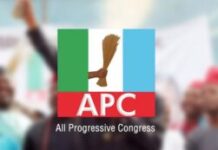Some experts in oil and gas business have urged the Federal Government to collaborate with local refineries to process the daily allocation
By Seidu Zainab/Yunus Yusuf
Some experts in oil and gas business have urged the Federal Government to collaborate with local refineries to process the daily allocation of 445,000 barrels of crude oil for domestic use, based on a tolling arrangement.
The experts gave the advice in interviews with the News Agency of Nigeria (NAN) on Monday in Lagos.
NAN reports that the advice is coming amid fuel scarcity in the country.
Mr Rabiu Bello, Senior Independent Non-Executive Director at Seplat Energy Plc., said that collaborating with local refineries would help the government to secure petroleum products needed for domestic consumption and allow export of excess products.
Bello said that such a collaboration would enable the Dangote Petroleum Refinery and other local refineries to operate profitably and achieve over 65 per cent capacity utilisation without requiring substantial additional investments in crude oil supplies.
He added that the Federal Government should conduct a forensic audit of NNPC/NNPCL’s financial records to determine the actual cost of importing and delivering petroleum products to Nigeria from 2012 to 2024.
Mr Tunji Oyebanji, a member of the Major Oil Marketers Association of Nigeria, advocated full implementation of the Petroleum Industry Act (PIA).
He said that full implementation of PIA would allow market forces to determine petrol price and reduce financial burden on importers and local refineries.
“Selling below cost is not sustainable.
“If prices are set at an economic level, other suppliers might enter the market, improving supply and reducing financial strain,” he said.
Mr Henry Adigun, an oil and gas consultant, also called for full implementation of the PIA to streamline operations in the downstream sector of Nigeria’s petroleum industry.
Adigun said that the current fuel scarcity could be mitigated if the government could pay outstanding debts to importers and allow fuel prices to return to market levels.
Mr Olufemi Soneye, Chief Corporate Communications Officer at NNPC Ltd., had, on Sept. 1, acknowledged that the company was facing financial strain due to high cost of petrol also known as Premium Motor Spirit (PMS).
He said that the increased cost was affecting sustainability of fuel distribution.
Soneye gave the assurance that NNPC Ltd. remained committed to its roles and was working with relevant government agencies and other stakeholders to maintain a consistent supply of petroleum products.
NAN correspondents who monitored the fuel situation within Lagos metropolis report that fuel price has surged as scarcity worsens.
Many filling stations on Ikorodu Road, Agege, Iyana-Ipaja, Ikeja, Somolu, Bariga, Ogba and Surulere were closed due to petrol shortage.
Also, long queues characterised few filling stations selling the product.
Meanwhile, some motorists have expressed frustration at the persistent scarcity of PMS.
They also decried the long queues at filling stations as well as increased black market sale of the product.
At Ikorodu, Epe, Badagry, and Ibeju-Lekki, a litre of petrol sold for N940 and above on Monday.
A Mobil filling station at Abule Egba sold petrol for up to N700 per litre.
Mr Adesanya Tunde, Manager at Mobil Station at Abule Egba, told NAN: “We couldn’t get enough supply, which is impacting our business and our customers.
” We are doing our best to manage the situation, but it is challenging.”
Mr Abiodun Ayeni, a Manager at a Conoil Station, blamed the increase in PMS pump price on scarcity of the product. (NAN)




